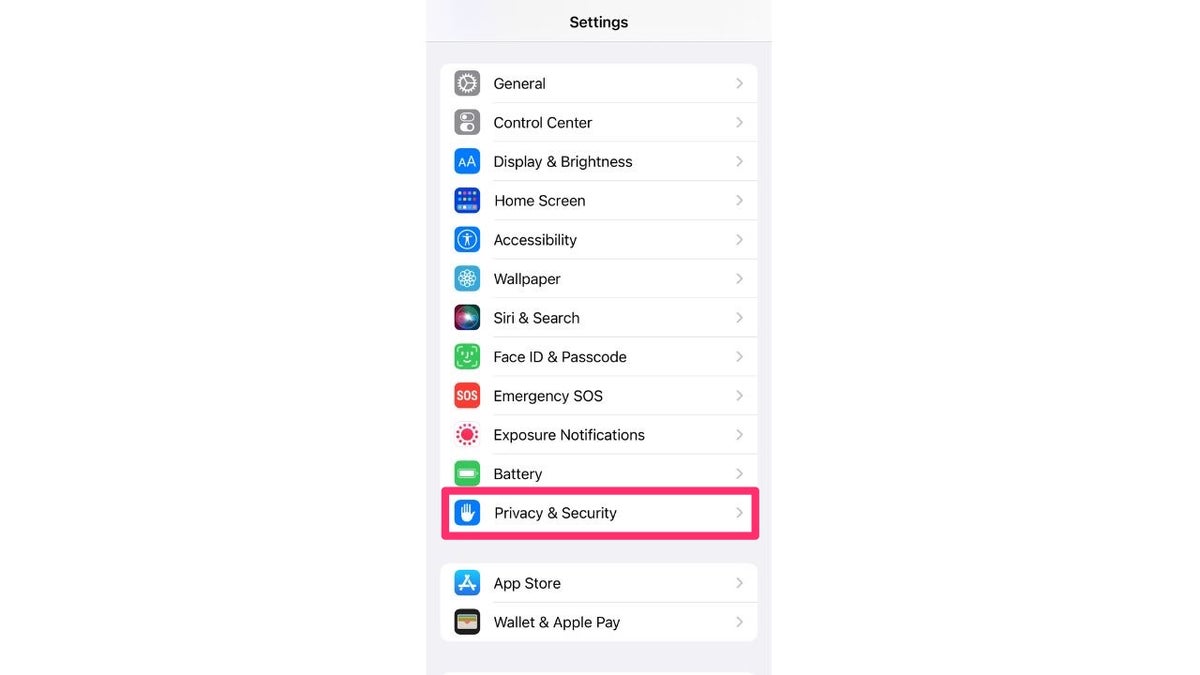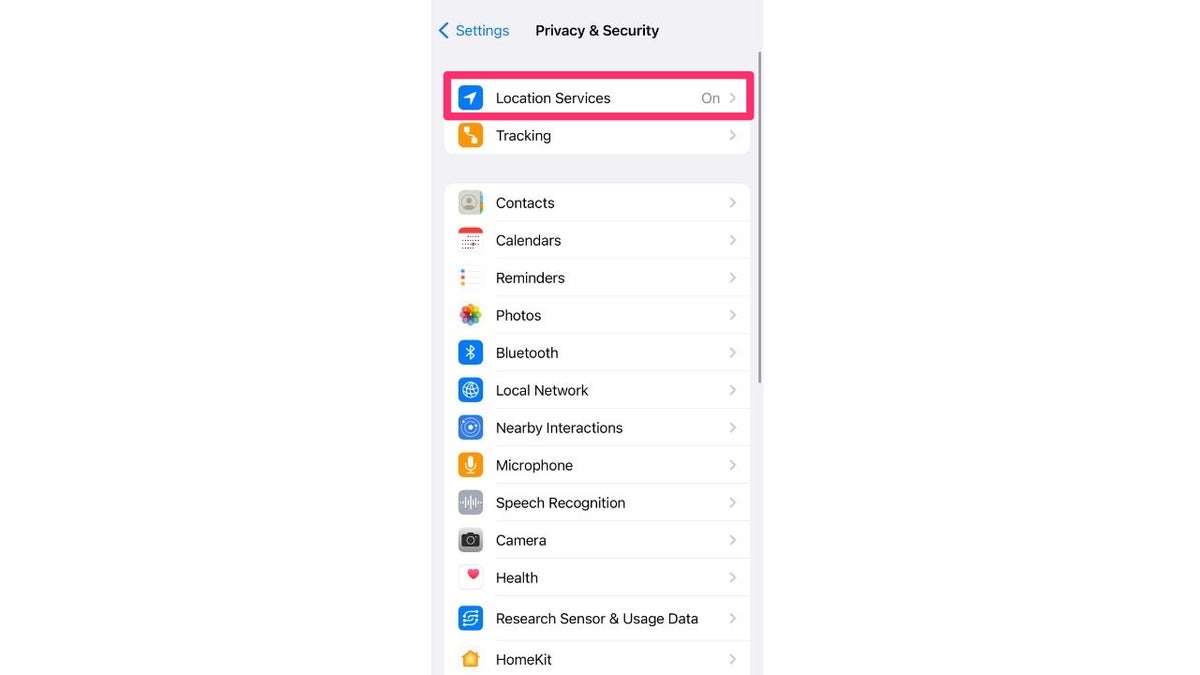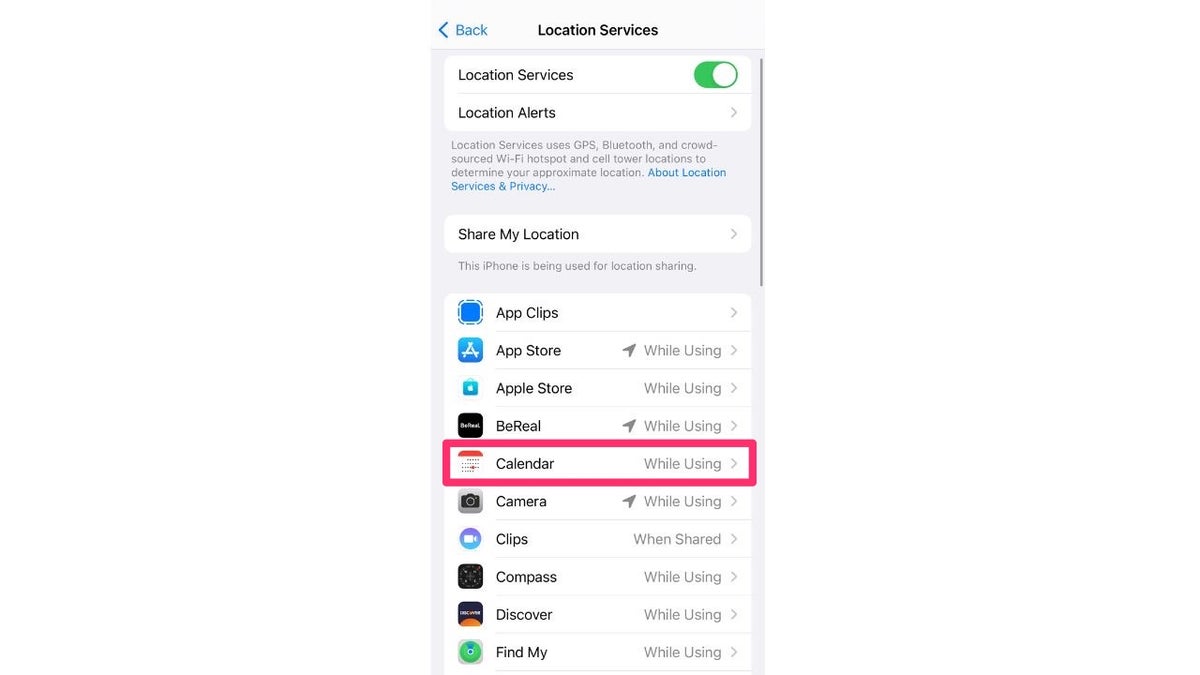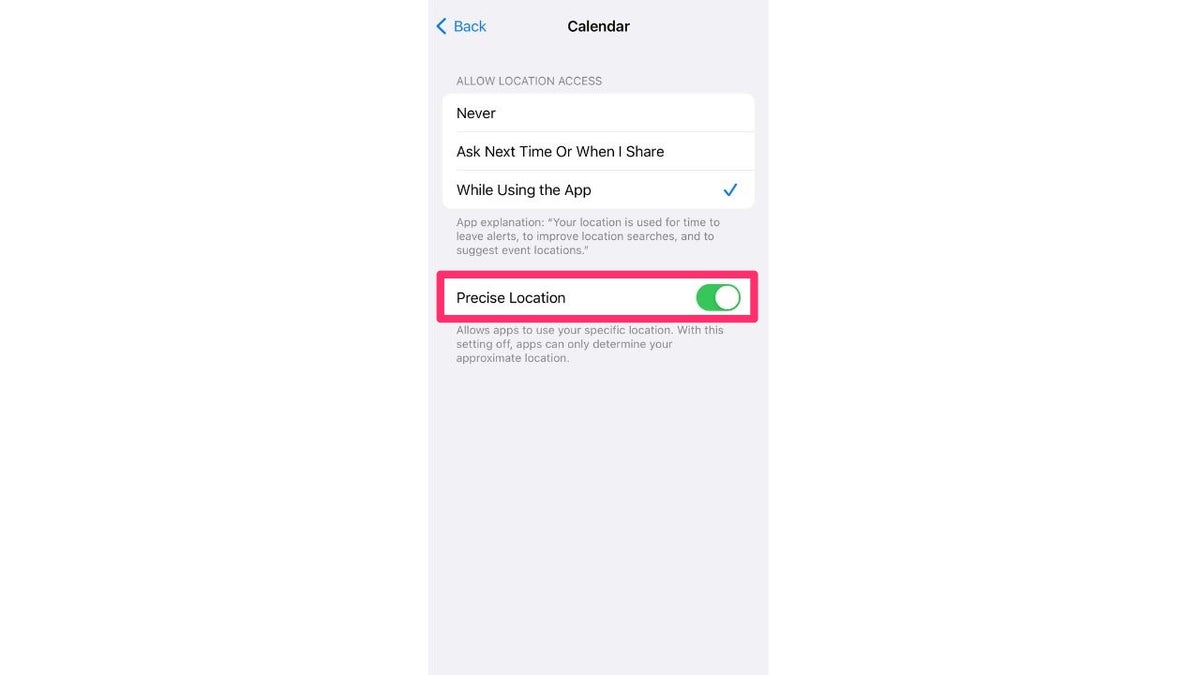Most creepy iPhone setting needs to be adjusted
Find out how to shut off this invasive feature that you may not know exists. Kurt "CyberGuy" Knutsson reports.
Every app on your iPhone comes with a certain set of permissions depending on what the app is used for.
For example, Instagram will ask permission to access your camera and photos app so you can take and post pictures, while WhatsApp will ask for access to your microphone to send voice notes.
Some apps take it further asking for your "precise" location. It's imperative to know what exactly they're asking you for.

Some apps take it further asking for your "precise" location. It is imperative to know what exactly they are asking you for. (Kurt Knutsson)
What's the difference between precise and approximate location?
Apps within Apple devices have two different location options that they might ask permission for. One is your approximate location, which just gives an app a general area where you're located (i.e. Chicago). You might grant permission to access your approximate location to an app that you use to find cool restaurants near you so that it can give you proper recommendations.
HAVE A SPY ON YOUR PHONE? TAKE STEPS NOW!
The other location option you can grant access to is your precise location, which is the exact address of where you are currently. An app like Uber, for example, will need your precise location so that your driver can pick you up at the right place.
Some apps will automatically begin using your precise location without your knowledge, and you should always be in control of what apps have this information readily available. Luckily, there is a way for you to adjust which apps have access to your precise location and which do not.

Some apps will automatically begin using your precise location without your knowledge, and you should always be in control of what apps have this information readily available. (Kurt Knutsson)
How do I turn off my precise location?
Turning off your precise location for certain apps is pretty simple as long as you follow these steps:
- Open your Settings app
- Scroll down and select Privacy & Security

Scroll down and select Privacy & Security. (Kurt Knutsson)
- Tap Location Services

Tap Location Services. (Kurt Knutsson)
- Every app on your phone that uses Location Services will be listed. To find out what capacity the apps have access to, click on any app option. We clicked on the Calendar app for this example

To find out what capacity the apps have access to, click on any app option. (Kurt Knutsson)
- Precise Location is turned on for this specific app. Toggle it off if you don't want an app to have access to your precise location. You can also change when a specific app has location access by choosing one of the 3 options above.

Toggle it Precise Location if you don't want an app to have access to your precise location. (Kurt Knutsson)
How do I know if using Precise Location is safe?
You can use your judgment when it comes to giving an app permission to your precise location. Ultimately, it's about as trustworthy as the app itself. If you're using an app like Uber or Lyft, where it's necessary to give them your precise location, it's safe to assume that you're not at risk.
IPHONE ACCESSORIES: HERE ARE 5 OF THE BEST FOR 2023
Double-check all your apps and see which ones you're comfortable giving your precise location to. It's ultimately better to not share your precise location with too many apps, as it is your personal data that you're giving away, but the decision is yours to make.
CLICK HERE TO GET THE FOX NEWS APP
For more on Apple’s next big thing, head over to CyberGuy.com and search "Apple" by clicking the magnifying glass at the top of my website. And be sure to subscribe to my free CyberGuy Report Newsletter by clicking the "Free newsletter" link at the top of my website.
Copyright 2023 CyberGuy.com. All rights reserved. CyberGuy.com articles and content may contain affiliate links that earn a commission when purchases are made.

